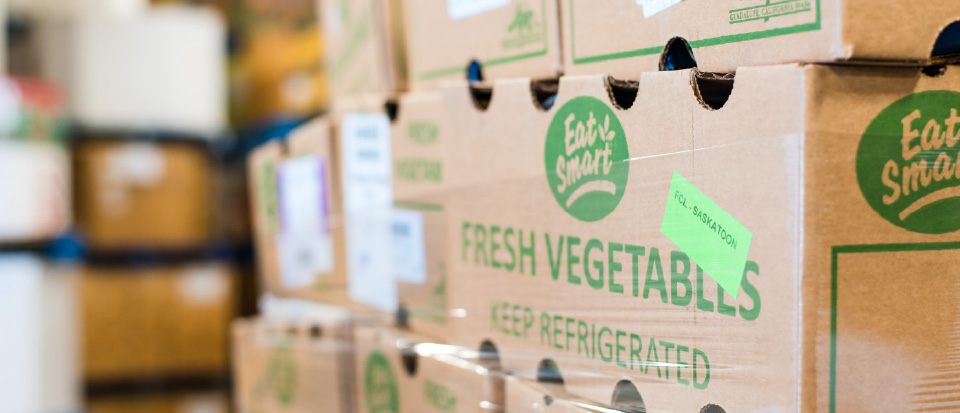
FCL is continually looking for ways to reduce and divert waste to improve its business operations and the overall environment. In 2014, FCL recycled 600,000 kilograms of cardboard and plastic wrap from warehouses, gave more than 480,000 kilograms of perishable food to local food banks and donated over 6,000 kilograms of surplus storage racking to Habitat for Humanity. Bottles for CO-OP® GOLD natural spring water are also now made from 100 per cent recycled plastic. Also, FCL works with suppliers to be responsible for the entire lifecycle of a product through extended producer responsibility (EPR) programs, which help support recycling initiatives.
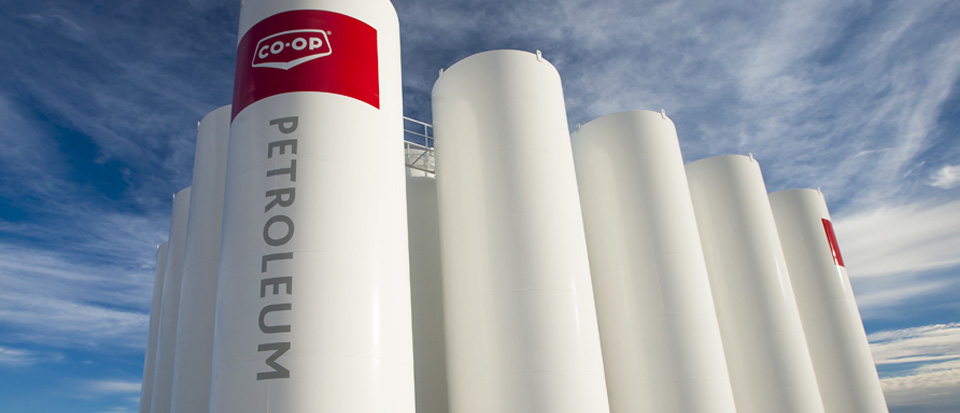
Co-op’s new bulk plant program is setting new standards for environmental, safety and security features in petroleum handling. New bulk plant tanks are set above ground and have two bottoms separated by a space with vacuum monitoring to identify failures early. The tanks are set in a secondary containment dyke fitted with a synthetic, hydrocarbon-resistant liner. A second liner membrane and monitoring provides a tertiary containment level. Automatic shut-off systems will prevent delivery trucks from being overfilled. If a spill were to occur, an underground oil-water separator allows petroleum product to be recovered and removed for disposal; the clean water is discharged to the storm water system.
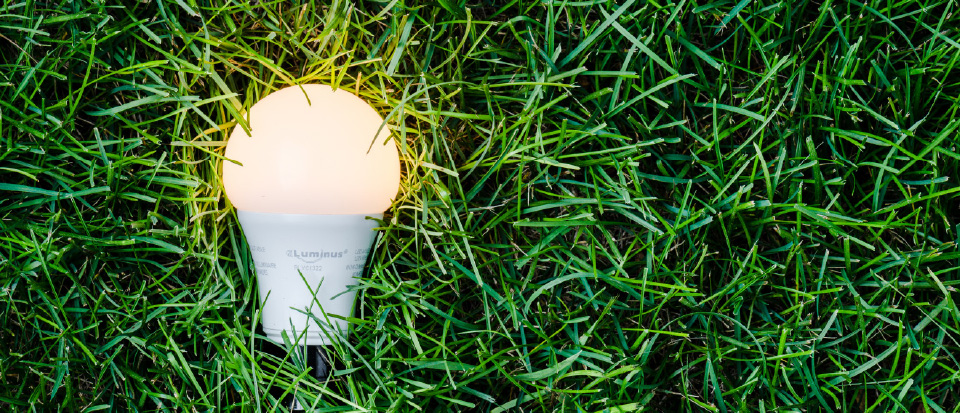
Changing light bulbs is no joke when you’re saving energy. To help customers improve energy efficiency in their homes, Co-op continued to partner with SaskPower in 2014 to offer instant rebates on light-emitting diode (LED) bulbs to Co-op Home Centre customers in Saskatchewan. Customers purchased 132,500 LED bulbs – which will help save over 3.7 million kilowatt hours in electricity – during special spring and fall promotions. This surpasses the 24,000 bulbs and 1,200 LED Christmas lights sold in the fall of 2013. Co-op also partnered with Manitoba Hydro on a similar promotion, selling 4,052 LED bulbs in the fall of 2014. This saves an additional 118,000 kilowatt hours of electricity consumption annually.
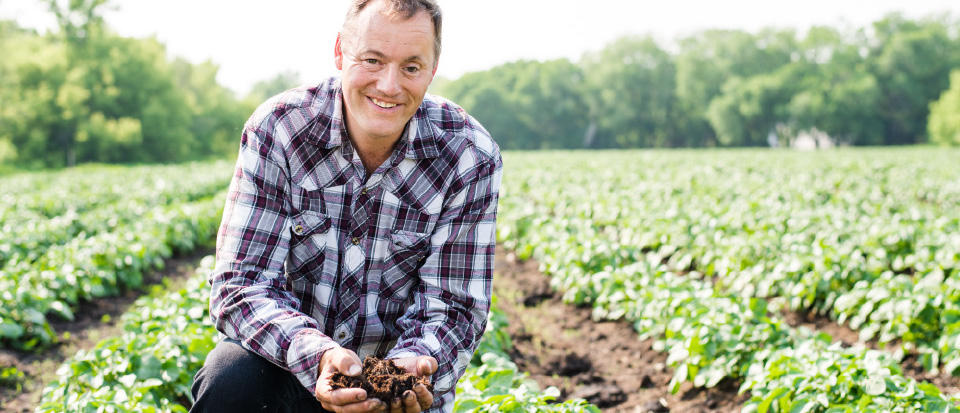
Sourcing products in an environmentally sustainable and socially responsible manner is important. FCL continues to support local producers through its Grown at Home, Raised at Home and Produced at Home initiatives. The new Sell to Us Guide provides details on supplying products to their local co-op store or distributing products through FCL’s warehouses. The CO-OP® GOLD PURE product line launched in 2015 also offers natural and healthy options for any lifestyle. Products will cover a range of food and cleaning products that address concerns for families and the environment.
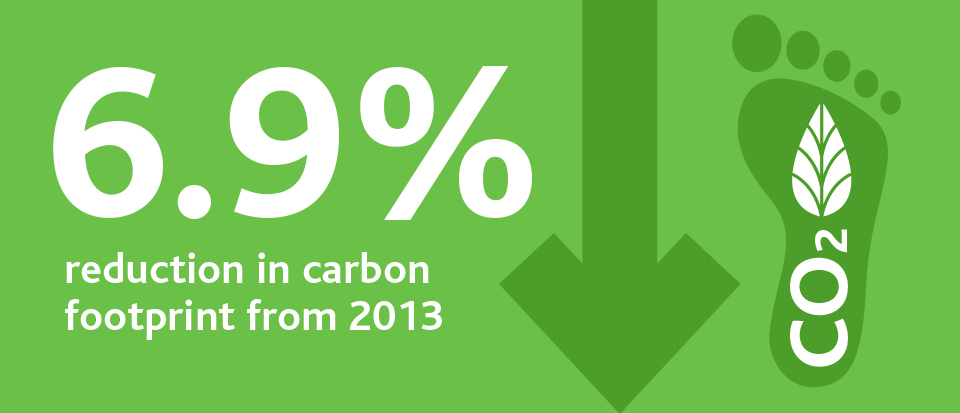
FCL has been collecting data related to its environmental performance for more than 30 years to help understand how its operations impact the environment. In 2014, FCL’s operations had a combined carbon footprint of 1.998 million tonnes of carbon dioxide equivalent (CO2e). This represents a decrease of 6.9 per cent from 2013. FCL’s 2014 greenhouse gas emission intensity is 184 tonnes of carbon dioxide equivalent per $1 million of revenue.
| tonnes of CO2e (in thousands) | ||
| Operations | 2013 | 2014 |
| Co-op Refinery Complex | 2,004 | 1,879 |
| Crude oil | 83 | 65 |
| Facilities, buildings and fleet | 60 | 53 |
| Total | 2,147 | 1,998 |
FCL continues its efforts to find sustainable ways to clean up historic fuel and fertilizer sites. In addition to its own research, FCL and the Natural Sciences and Engineering Researching Council (NSERC) announced $2 million in funding over five years to create an industrial research chair at the University of Saskatchewan in 2015. FCL also established the Sustainable In-Situ Remediation Co-operative Alliance (SIRCA), a group of researchers, universities and co-operatives working collaboratively to advance research activities and remediation technologies.
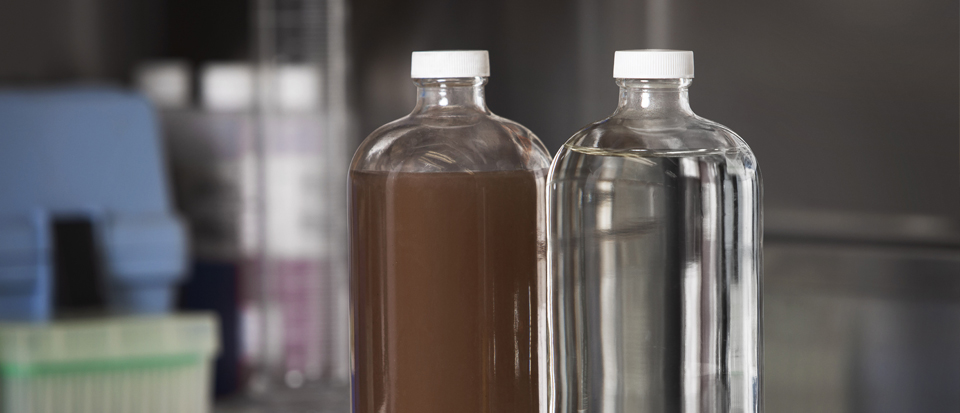
Water is a necessity for many industrial processes, including those at the Co-op Refinery Complex. As part of being a good environmental steward, FCL is being diligent in taking the steps to conserve local water supplies. The Wastewater Improvement Project (WIP) at the Co-op Refinery Complex is a $200-million project that will reduce fresh water use, minimize odours from the existing wastewater ponds and limit outgoing wastewater by recycling 65 per cent of the CRC’s wastewater. This is only one example of investments in environmentally focused projects and initiatives across facilities and business operations.
Learn More